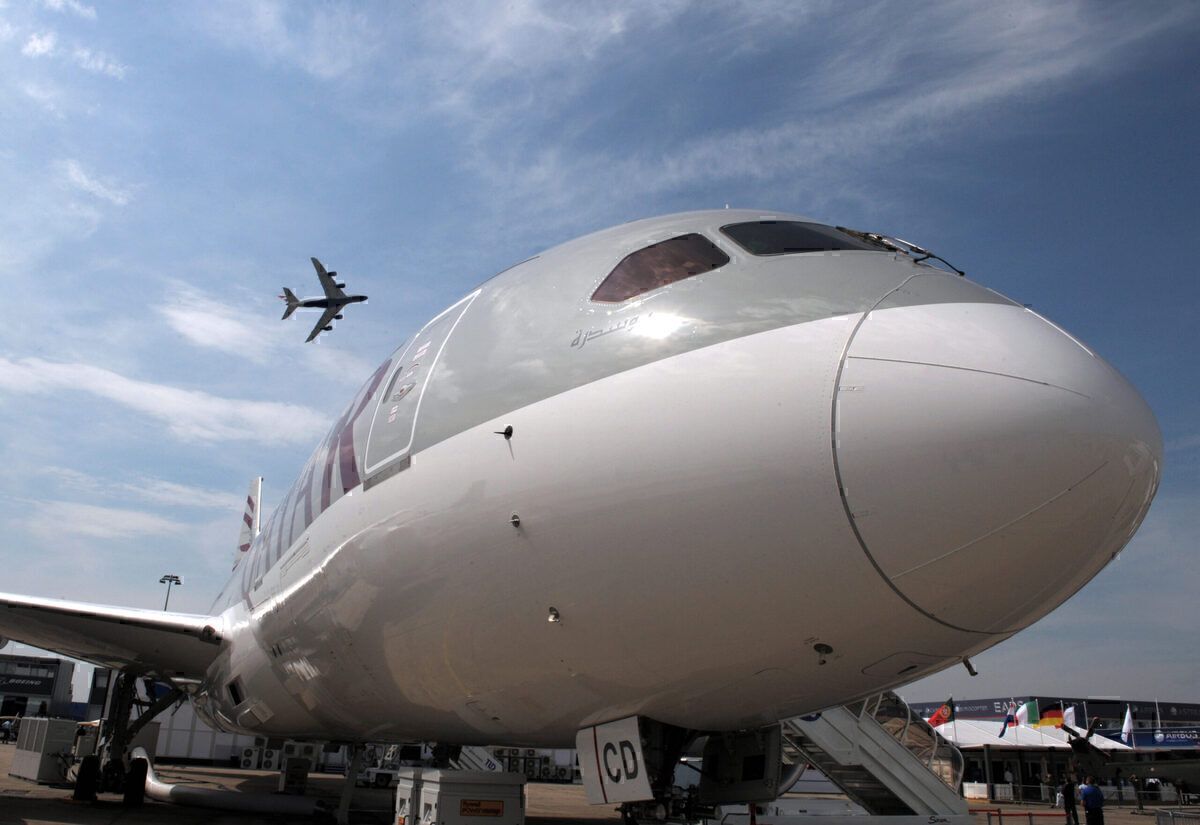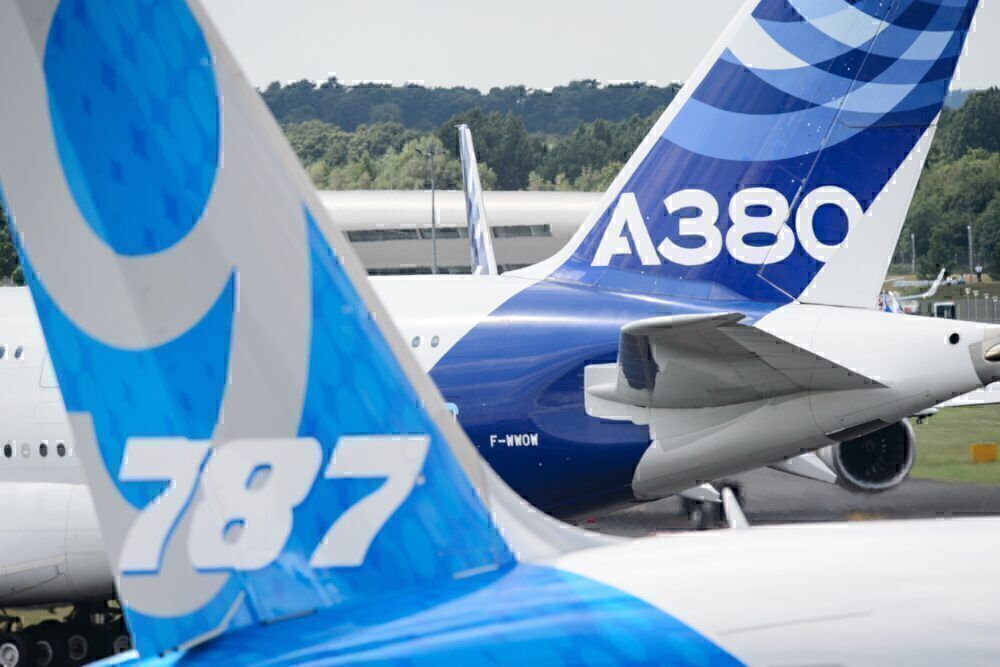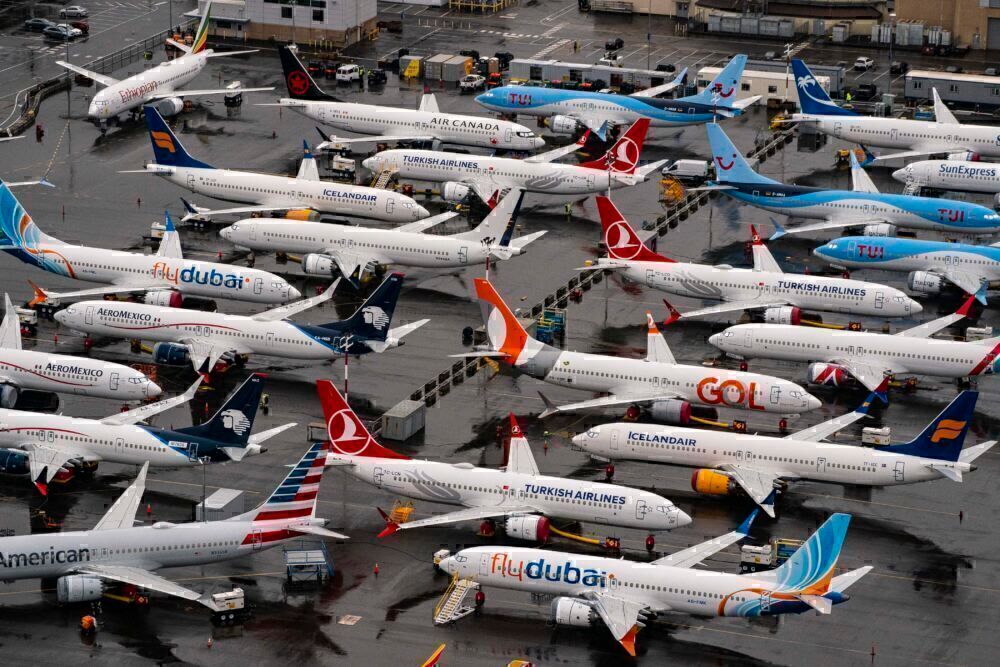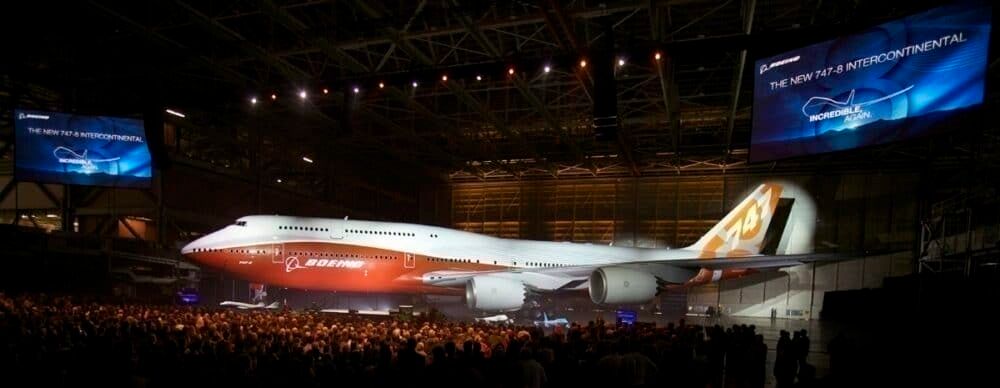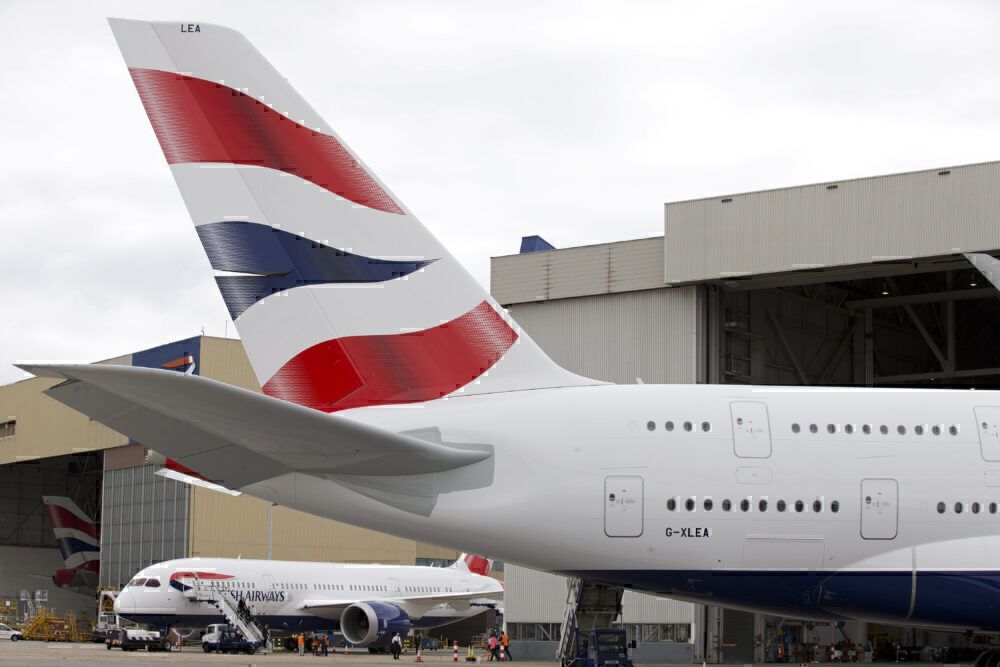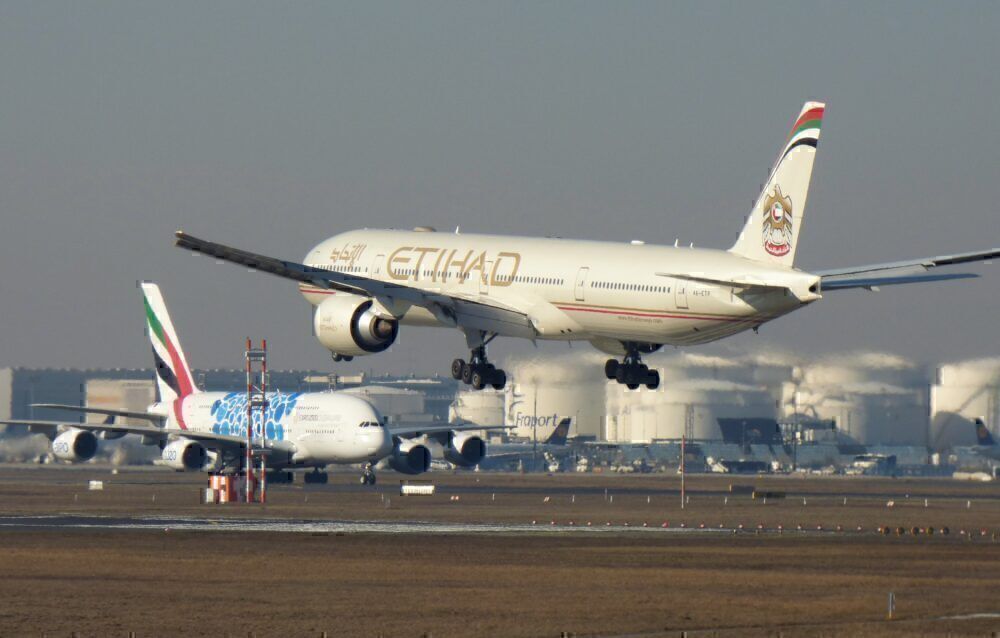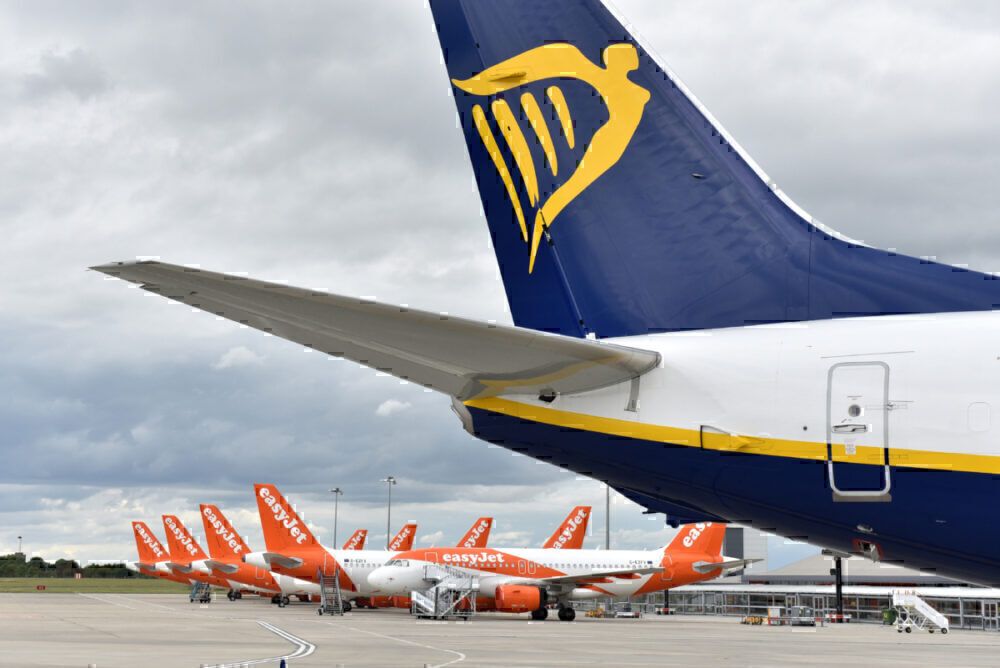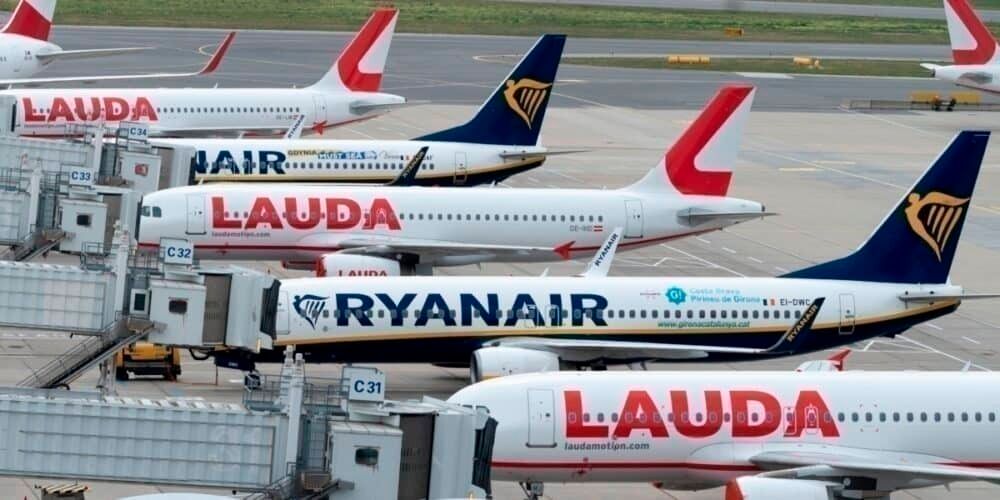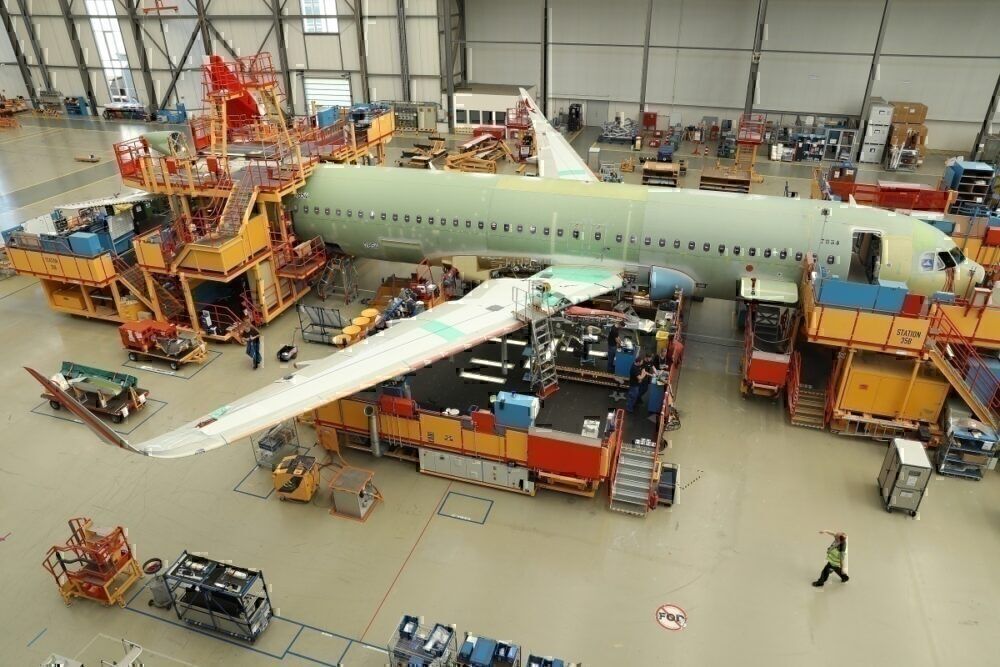Two companies dominate the manufacturing of commercial aircraft today. This duopoly consists of American manufacturer Boeing and multinational European corporation Airbus. But how exactly do these companies compare to one another?
What points of comparison are there?
The commercial aviation industry is fiercely competitive. Deciding between Airbus and Boeing products is a choice made every week by airlines worldwide as they look to purchase the next assets for their growing fleets. With countries like China reportedly needing over seven thousand jets over the coming years, it is a choice that is more important than ever.
As such, we will examine both manufacturers from the perspective of an airline eyeing such an expansion. We will examine factors such as financial aspects, company structure, fleets (products), and more.
At a glance
|
Airbus |
Boeing |
|
|
Employees (2019) |
135,000 |
161,000 |
|
Revenue (2019) |
€78.9 billion ($95.9 billion) |
$76.6 billion |
|
Overall profit/loss (2019) |
$6.3 billion |
-$636 million |
|
Gross orders (2019) |
1,131 |
246 |
Airbus is the smaller company in terms of employee numbers, falling short of Boeing by approximately 26,000. However, we can see that, for 2019, it was far more successful than Boeing in terms of profit and gross orders. This is more than likely a consequence of the two fatal crashes that led to the grounding of the Boeing 737 MAX in March 2019.
The crashes of Lion Air flight JT610 and Ethiopian Airlines flight ET302 occurred within five months of each other, resulting in 346 fatalities between them. After the accidents were found to bear several striking parallels, aviation safety agencies worldwide elected to ground the type indefinitely.
This had a serious impact on Boeing's image, causing the company to lose customer confidence. The financial consequences are plain to see in the table above. Indeed, 2019 saw its first annual loss in two decades.
Going forward, things are beginning to look better for Boeing, as the USA and Brazil have recently recertified the MAX series. However, with the ongoing coronavirus pandemic having hit the industry hard, both Airbus and Boeing will have struggled in 2020 nonetheless.
Fleets
One can draw many parallels between the fleets of commercial aircraft that Airbus and Boeing produce. This is perhaps to be expected, after all, as they compete in the same sub-markets within the airline industry as a whole. In some instances, one can even find points of comparison between two aircraft from the same manufacturer. Simple Flying has covered such discourses extensively in previous articles, a selection of which can be found at the following links:
- Boeing 777X vs. Airbus A380
- Airbus A330neo vs. Boeing 787-9
- Boeing 777X vs. Boeing 747
- Airbus A220 vs. Boeing 737
- Boeing 777X vs. Airbus A350
- Boeing 787 vs. Airbus A350
At the end of the day, both manufacturers invest millions in technology and engineering. The end goal in both instances is to build the best and safest flying transportation possible. This is how the two companies have come to constitute such a powerful duopoly in commercial aircraft manufacturing. With that in mind, one might be hard-pressed to choose between the two.
Technological development
That being said, more often than not, Boeing is lauded for its firsts. For example, it was the first manufacturer to build a plane out of composite materials. This aircraft is the 787 'Dreamliner,' at 50%, although Airbus has also since built a 53% composite aircraft: its A350 XWB. Boeing is perhaps best known for being the first manufacturer to produce a double-decker aircraft. This was, of course, the iconic 747, known by some as the "Queen of the skies."
As far as pilots are concerned, it has been said that the yoke on Boeing aircraft gives a better sense of what the plane is experiencing. However, the controls on Airbus are said to be more high-tech. As a result, the increased level of automation in the cockpit helps to eliminate the human error factor in safety.
Some would even go as far as to say that Airbus merely waited and watched Boeing produce the 707 and 737 before developing its own competitors. One might also draw similar parallels when looking at the Airbus A380 and A350. After all, both of these aircraft are competitors to the Boeing 747 and 787 respectively.
However, and crucially, they were both developed after their American counterparts. Nonetheless, the aircraft in question do still differ in many ways. As such, it would perhaps be cynical to state that Airbus outright copied Boeing in this respect.
Manufacturing
Both Airbus and Boeing officially manufacture their airliners in their home countries. Boeing's main factory is situated in Everett, Washington, at the northeast corner of Paine Field. Meanwhile, the majority of Airbus's production takes place in Toulouse, France and Hamburg, Germany.
However, in practice, it often proves to be the case that aircraft are sourced and built worldwide. For example, Boeing actually builds some of its aircraft internationally (where products may be cheaper or closer to customers), and then finishes them in America. An example of this is the 787 Dreamliner, a lot of which is built in Japan.
Being a multinational European corporation, Airbus was initially restricted to only using European suppliers and manufacturers. However, the seamless movement of goods and people between EU countries means that this has not proved to be a particular hindrance. As a result, most of its products are produced exclusively within Europe. However, it does have some overseas production facilities for certain aircraft. These are situated in Mirabel (Canada), Mobile (USA), and Tianjin (China).
Government subsidies
A common argument when comparing these two manufacturers is that one is supported by its government(s) whilst the other is a hardworking capitalist firm. In reality, both Airbus and Boeing could assume either position in this sentence. In truth, both of these statements apply to each of them.
For example, Boeing gets exclusive contracts with the US military and government. Meanwhile, Airbus gets tax breaks and government subsidies in the form of government orders. All in all, it is a like-for-like argument that is difficult to break down and simplify.
But what do they do with this competitive advantage? It allows them to price their planes far cheaper than asking price:
|
Aircraft |
List Price ($m) |
Market Value ($m) |
Discount |
|
A380 |
432.6 |
236.5 |
45% |
|
B777-300ER |
339.6 |
154.8 |
54% |
|
A350-900 |
308.1 |
150 |
51% |
|
B787-9 |
264.6 |
142.8 |
46% |
|
B787-8 |
224.6 |
117.1 |
48% |
|
A330-300 |
256.4 |
109.5 |
57% |
|
A330-200 |
231.5 |
86.6 |
63% |
|
A321 |
114.9 |
52.5 |
54% |
|
A320neo |
107.3 |
48.5 |
55% |
|
B737-900ER |
101.9 |
48.1 |
53% |
|
B737-800 |
96 |
46.5 |
52% |
|
A320 |
98 |
44.4 |
55% |
|
A319 |
89.6 |
37.3 |
58% |
|
B737-700 |
80.6 |
35.3 |
56% |
So, as you can see, both companies press these advantages to beat the competition.
Conclusion - which, if any, is the better manufacturer?
At the end of the day, both companies produce safe and reliable aircraft that passengers should have no problems traveling on. It is certainly true that the recent grounding of the Boeing 737 MAX called its operational safety into question. However, its recertification suggests that appropriate safety measures have been taken to ensure tragedies such as those that led to its grounding do not happen again. Indeed, the MAX series is surely one of the most heavily-scrutinized airliners of all time.
As far as aircraft interiors are concerned, these are made and designed by airlines rather than aircraft manufacturers. As such, passenger comfort levels, while still very important, depend on factors outside of Airbus and Boeing's control. Ultimately, it comes down to personal preference. Be it the government-supported Airbus or the military-contracted Boeing, the decision on a personal level lies in the hands of the passenger themself.

